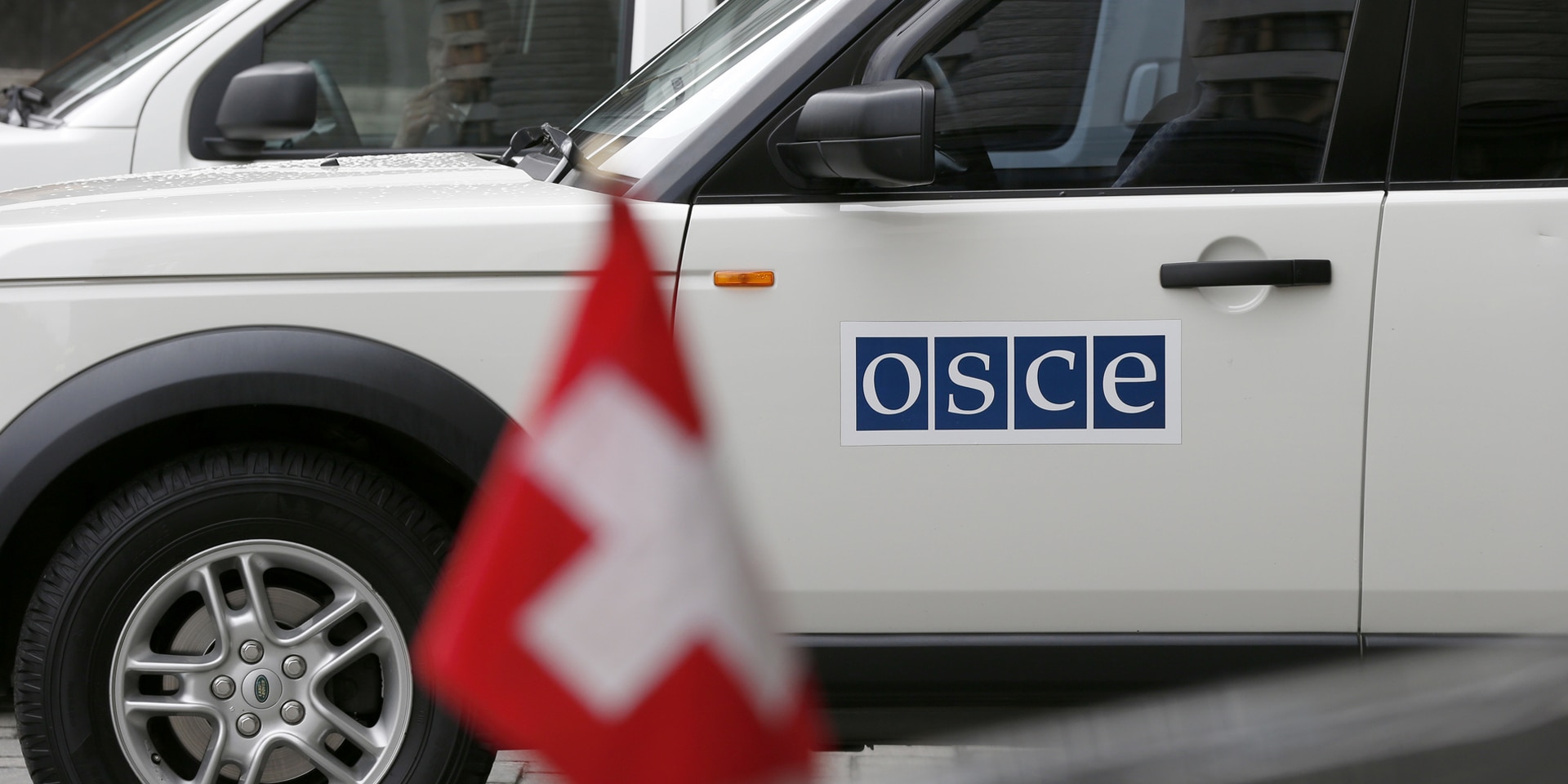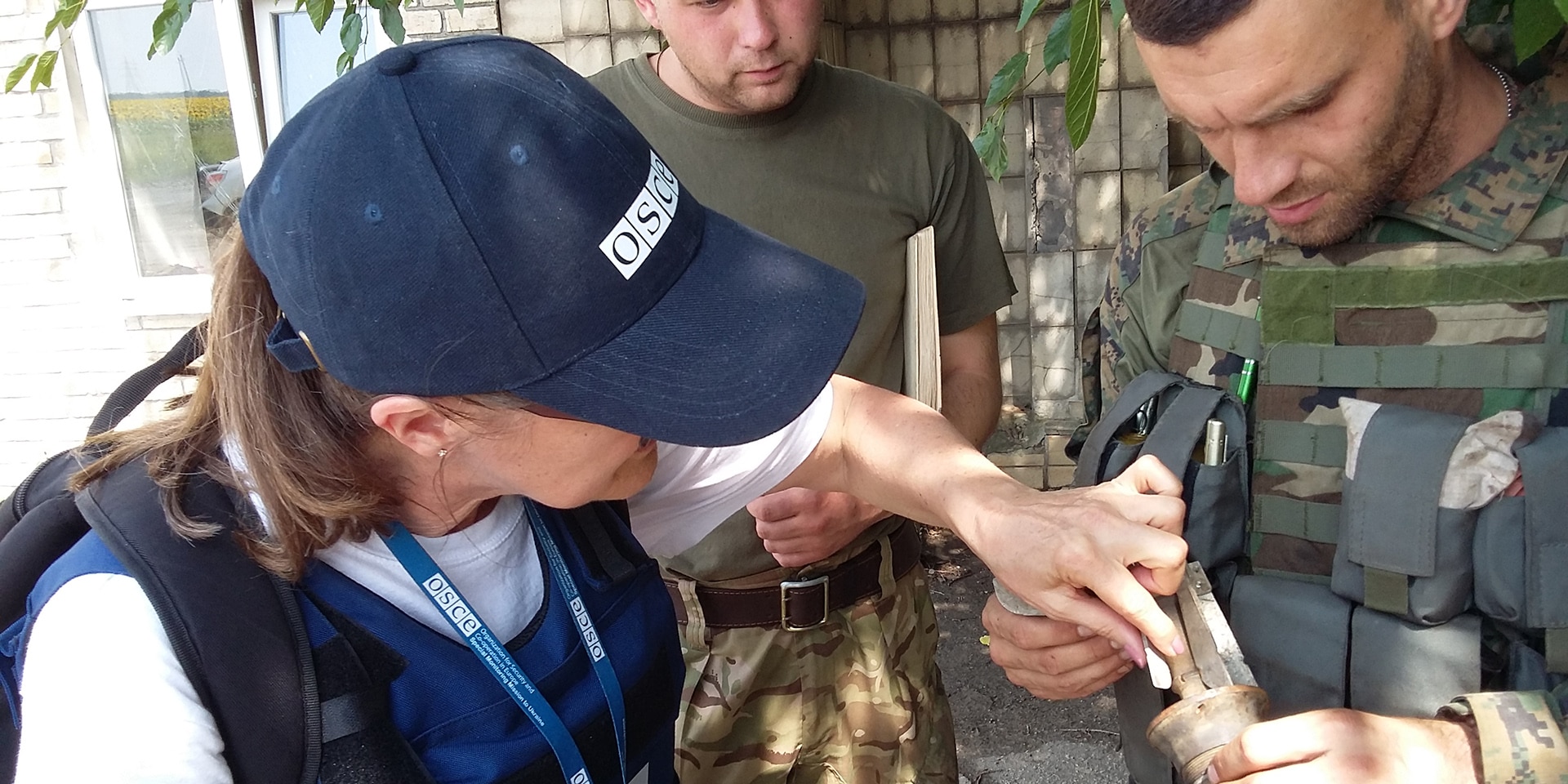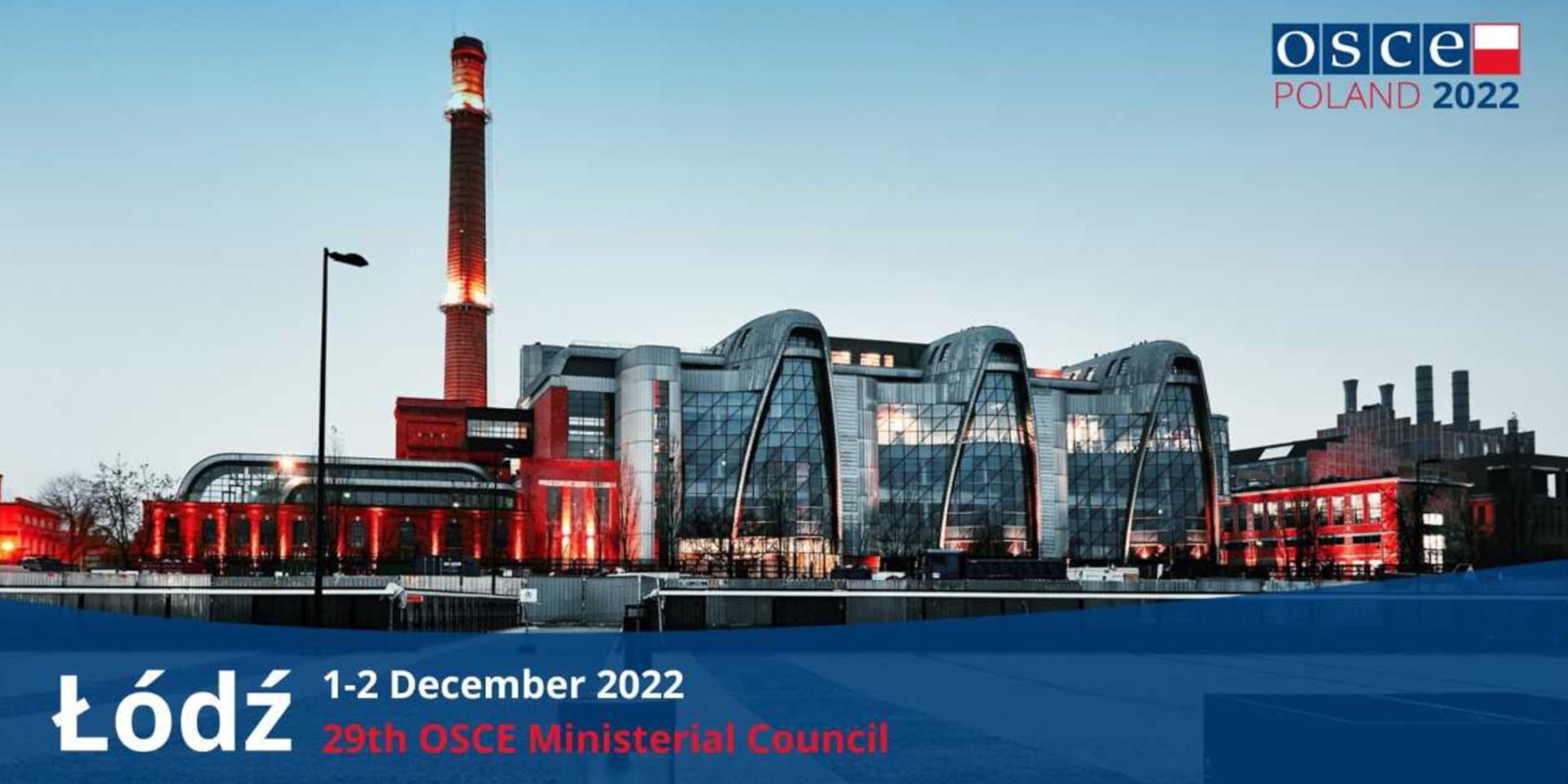Switzerland and the OSCE: working together for peace and security in Europe
Federal Councillor Ignazio Cassis's participation in this year's OSCE Ministerial Council in Skopje provides an opportunity to spotlight the organisation's activities. The OSCE is a key platform for Switzerland to implement its foreign policy priorities for peace and security. People in the region benefit from the OSCE through its field missions, election observation missions and efforts to promote respect for human rights.

The OSCE is a major platform for Switzerland to realise its foreign policy priorities for peace and security in Europe. © Keystone
The political repercussions of Russia's military aggression against Ukraine have also impacted the OSCE. Due to a lack of consensus among participating states, the OSCE's chairmanship for 2024 remains vacant, the extension of key executive positions in the organisation is proving challenging, and no budget has been adopted. Nevertheless, the OSCE continues to provide added value for the people in the region through its activities. As a founding member of the OSCE, Switzerland uses the organisation as a major platform to implement its foreign policy priorities for peace and security in Europe. The following three examples highlight the organisation's concrete fields of action and Switzerland's commitment in these areas.
Field mission in Albania: strengthening society's trust in political institutions
The OSCE continues to pursue its field missions virtually unhindered, far from its headquarters in Vienna. In South-Eastern Europe, Eastern Europe and Central Asia, the OSCE's field operations support the participating states in promoting peace and democracy and strengthening human rights and the rule of law.
The SDC has a significant project partnership with the OSCE in Albania. The OSCE project is helping the Albanian parliament to operate more efficiently and to enhance its legislative processes and oversight of the executive branch of government. The project aims to ensure that the Albanian parliament has a well-functioning and integrated e-legislation system that enhances access to laws and parliamentary decisions, and thus contributes to the transparency and integrity of the legislative process. This strengthens society's trust in its institutions and democracy. Albania is also receiving support to further advance electoral reform and electoral processes in line with the recommendations of the OSCE Office for Democratic Institutions and Human Rights (ODIHR), thereby ensuring that elections are conducted in an effective and efficient manner. Targeted information and awareness-raising campaigns are also helping to increase Albanian citizens' participation in political processes. This allows citizens to freely form their own opinions, which is the foundation of a functioning and inclusive democracy. The project is set to continue in the coming years.
Election observation missions
The election observation missions carried out by the ODIHR enjoy a high level of international recognition. The ODIHR has carried out over 400 election observation missions since 1996. These missions serve to assess the extent to which fundamental freedoms are respected in elections held in OSCE participating states. The scope and focus of election observation missions vary greatly depending on the context. Election observation activities may involve monitoring of the political environment before, during and after an election. Depending on the context, a mission's remit may include the following activities:
- In the lead-up to an election: observing violations such as administrative restrictions on minorities.
- On election day: observing whether ballot boxes are being (un)lawfully stuffed or voters intimidated at polling stations.
- After the elections: ODIHR support to the country's authorities to improve electoral processes and follow up on the recommendations of the observation missions.
- Some missions also focus on digitalisation programmes. The introduction of new election technologies poses a potential challenge in terms of transparency and accountability.
In 2023, Swiss experts participated in ODIHR election observation missions in Kazakhstan, Montenegro, Bulgaria, Albania, Turkey, Uzbekistan and Poland. At Switzerland's invitation and following a fact-finding mission in July 2023, the ODIHR dispatched an expert mission to observe Switzerland's federal elections on 22 October of this year. The election observation team focused in particular on campaign financing, electronic voting and barrier-free access to the elections for people with disabilities.
Moscow Mechanism
The Moscow Mechanism, launched at an OSCE conference held in Moscow in 1991, is an instrument for investigating serious human rights violations in a country. Once the mechanism has been activated by a group of participating states, short-term fact-finding missions are deployed to prepare a report on the human rights situation in a specific country for the attention of the OSCE Permanent Council within a short period of time. Such reports call on the states concerned to take action in line with the recommendations made by the fact-finding missions. The mechanism is a major contribution to documenting facts and strengthening accountability at national and international levels.
Thanks to the Moscow Mechanism, the OSCE was able to respond to Russia's military aggression against Ukraine, even though Russia is an OSCE participating state. In March and June 2022 and in spring 2023, fact-finding missions investigated the human rights and humanitarian consequences of the acts of war in Ukraine. The mechanism was also deployed this year and last year in Russia and Belarus to investigate human rights violations. Switzerland was involved in the activation of the Moscow Mechanism in each case and supported it both politically and financially.



